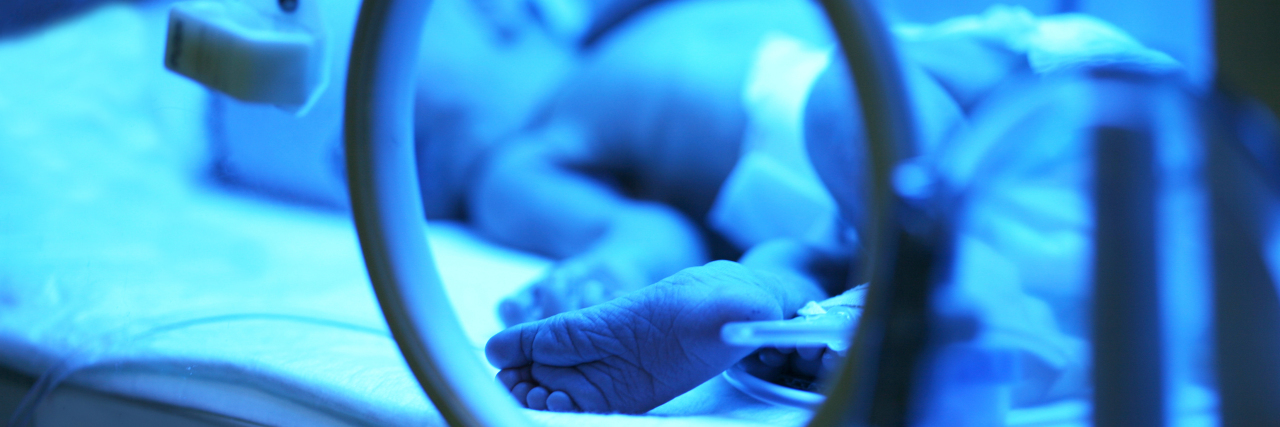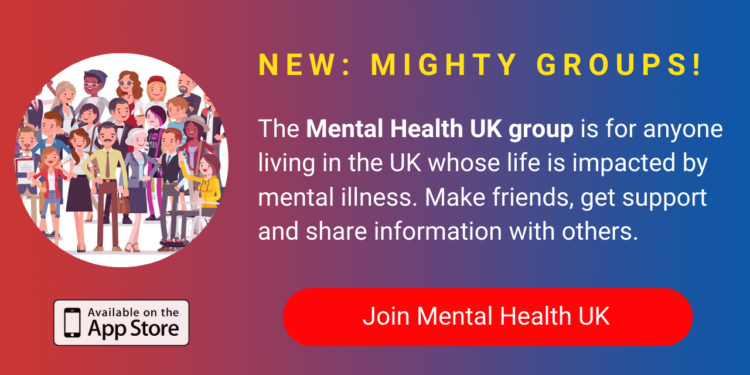5 Mental Health Reactions Parents Experience When Their Baby Is in the NICU
COVID-19 has raised awareness among the general public of just how traumatic it is to be a patient on a ventilator in intensive care, or to have your loved one in that position. But what if the loved one being ventilated is your newborn baby – the most fragile kind of hospital patient imaginable?
Now that everyone understands just how tough intensive care is for families, I’m hoping there will be more awareness of what neonatal intensive care can do to one’s mental health.
Later this year, British charity Leo’s Neonatal, run by Lottie King, a mother whose twins were born extremely premature, plans to run the second ever Neonatal Mental Health Awareness Week (search #NICUMHAW on social media). Neonatal units are coming together to pledge to make the NICU a less traumatic place for parents, and we’re seeing snowballing research and interest in NICU mental health.
It’s increasingly recognized that there are specific psychological issues common to parents’ neonatal (and foetal medicine) experiences. In my book, “The First Breath” (published last year by Pan Macmillan and out in paperback this June), I explore this subject and tell my own story of postnatal depression and anxiety during the five months my son spent in the neonatal unit.
Hospitals are barely starting to wake up to the need for specialist support for the parents whose babies’ lives are in their hands. Unbelievably, not every neonatal unit has a perinatal psychiatrist or psychologist attached, and there is still too little understanding in some units of the psychological needs of NICU parents, like these…
1. Depression and anxiety
First let’s talk about the constant panic any parent feels for their ill baby, the rollercoaster of months in hospital, and the trauma of seeing your child undergo countless uncomfortable medical procedures. There are agonizing decisions to make and thoughts which may feel “unspeakable” to family and friends, leading to feelings of intense isolation.
Rebecca Chilvers, lead neonatal unit psychologist at Guy’s and St Thomas’ Hospital in London, stresses, “It’s important to help parents understand that they aren’t ‘going crazy’ or ‘losing their mind,’ but that their reactions are understandable in the context of such challenging circumstances.”
2. Institutionalization
The unnatural separation of a mother and her baby is a major root cause of attachment difficulties, and a particular kind of postnatal depression and anxiety in the NICU. The baby, covered in wires and cared for by strangers, becomes a little stranger. “It’s almost like it’s not your baby,” one mother told me.
In the neonatal unit, parents are deprived of privacy; of precious unobserved moments for bonding. Mothers of healthy babies can work out their own way of mothering in their own homes. In the NICU, you’re learning, and making mistakes, in public. You can feel self-conscious when you sing to your baby, because several people are overhearing. And later you read for how many minutes you held and sang to your baby in their hospital notes. It’s enough to make many feel judged and inhibited.
The neonatal unit is an institution with its own set of highly controlled rules, a bit like school. You have to get permission to hold your baby, to do almost anything, in fact. And, while lifelong friendships can form, for some, it can also feel cliquey and competitive. It’s hard not to compare yourself negatively with other parents who seem to arrive earlier or stay later, or who seem to cope better.
3. Extreme guilt
NICU mothers are often secretly convinced they are not good enough mothers, and feel shame at this.
It can be triggered by not being able to express enough breast milk, despite the fact that a round-the-clock expressing regime on top of having a sick baby you have barely touched is an almost superhuman demand. Many feel afraid they did something “wrong” during pregnancy that caused their baby’s sickness, even though rationally they know no one is to blame. Or it could be guilt at seemingly unacceptable feelings of not being able to cope with having a sick baby, or a diagnosis the baby has been given.
4. Hyper-vigilance
Anxiety around keeping the baby “safe” can lead to hyper-vigilance or even trigger obsessive compulsive disorder (OCD), with fears often centered on hygiene because of hospital culture.
For every parent, the vulnerability of a newborn baby can feel a daunting responsibility, but when your baby is very sick and could actually die, this is multiplied many times over. Dread of something bad happening to the baby cannot be dismissed as paranoia in the NICU. Before touching your baby in the NICU you must wash your hands and sanitize your hands thoroughly, and if expressing, you do a lot of sterilizing — so it’s easy to fall into the trap of extreme worries about the baby’s safety. In my case, it was only when I found myself wondering how I could sterilize the sterilizer itself that I realized I was definitely worrying too much.
4. Post-Traumatic Stress Disorder (PTSD)
For many neonatal families, leaving hospital is by no means the end of the journey, and adjusting to life at home as a baby with a disability’s caregiver without nurses and doctors’ constant presence (or any recognition of having undergone psychological trauma) can be daunting.
And given the trauma of having a baby in NICU, it’s not surprising that parents can feel haunted by what happened — and may perhaps only really understand it — years after their baby’s discharge.
The mere smell of hand sanitizer or stepping into a hospital can conjure powerful, painful memories. A small number of people experience more intense flashbacks, such as imagining hearing the beeping of hospital monitors. Lottie, founder of #NICUMHAW, describes how when in the depths of her PTSD, she “would see an ambulance with its lights on drive past and the sweating would start, the crying, the hyperventilating and ultimately a panic attack.”
If your baby’s NICU stay has affected your mental health, know that this is natural and common, and professional support is out there. Lottie has had therapy which has helped, and reflects, “Sure, I still have anxiety, I still grieve, I still hurt…and I am sure my mental health will always need support; too much has happened for it not to. I’m OK with that.”
The more we talk about the psychological impact of NICU, the more support parents will get – so let’s bring it out into the light.
Did you experience the NICU? Tell us about it in the comments.
Photo credit: mycan/Getty Images


